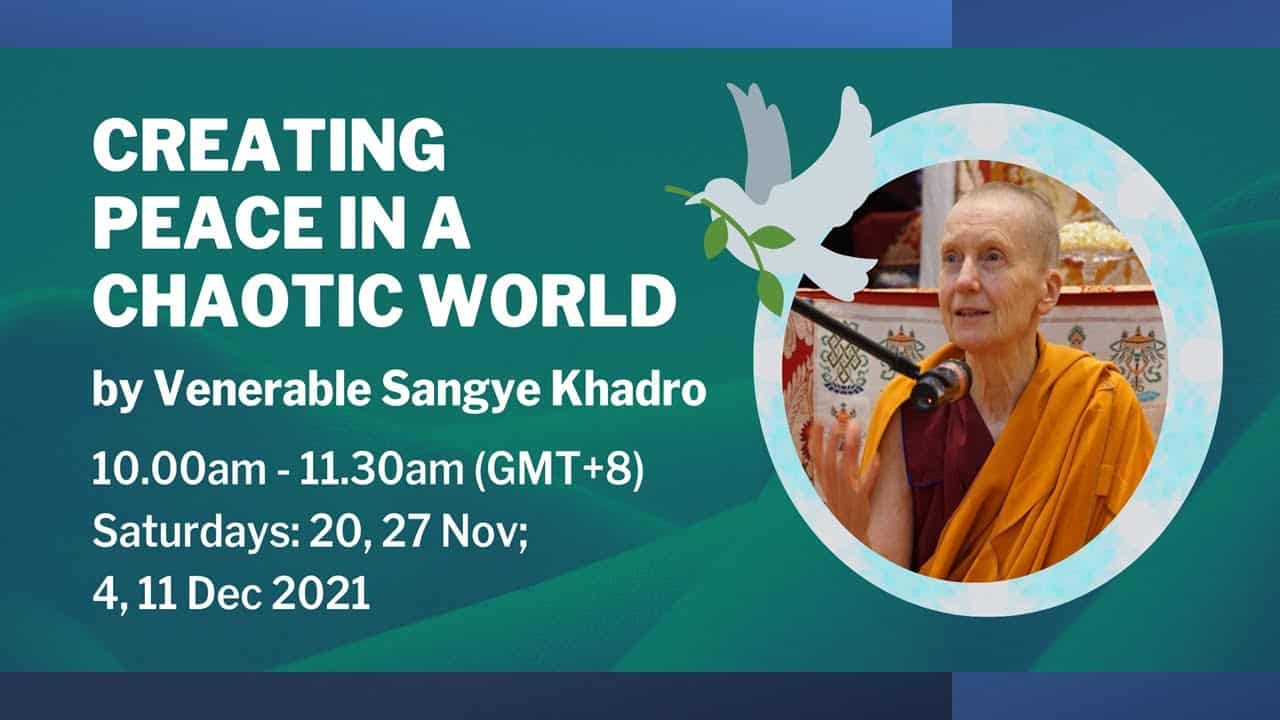First-link ignorance
43 Samsara, Nirvana, and Buddha Nature
Part of an ongoing series of teachings (retreat and Friday) based on the book Samsara, Nirvana, and Buddha Nature, the third volume in The Library of Wisdom and Compassion series by His Holiness the Dalai Lama and Venerable Thubten Chodron.
- Explanation of dependent and related
- Twelve links
- Complete set of twelve links occur over two or three lifetimes
- Origin of a link, cessation and path leading to the cessation
- Scope of ignorance according to different tenet systems
- Four truths and three characteristics
- Self-sufficient substantially existent person
- Grasping at inherently existent person
- View of a personal identity
- Stage at which ignorance and view of personal identity is overcome
Samsara, Nirvana, and Buddha Nature 43: First-link Ignorance (download)
Contemplation points
- Consider the meaning of your life. Are you simply collecting memories and achievements according to societal expectations? What is it that makes life meaningful? Who do you want to be in this life; in the next life? What hinders you from thinking about this and why? Resolve to start creating the causes now for the person you want to be.
- What are the twelve links of dependent arising? Why are these links defined as being both dependent and related? Contemplate each in detail. The Buddha calls on us to contemplate: What is the origin of each link? What is its cessation? What is the path leading to that cessation? Go through this contemplation with at least 3 links.
- Describe the ignorance that is the first link of dependent arising. What is the difference between grasping the self of persons, grasping the self of phenomena, and view of the personal identity?
- Draw a diagram of Venerable Chodron’s explanation of personal identities and ignorance.
- Consider that the mind and body exist by mere designation. Is that the feeling you have about yourself? Does thinking in this way make you a little nervous? We’re sure the self exists independently, but explain how that cannot be the case.
Venerable Thubten Chodron
Venerable Chodron emphasizes the practical application of Buddha’s teachings in our daily lives and is especially skilled at explaining them in ways easily understood and practiced by Westerners. She is well known for her warm, humorous, and lucid teachings. She was ordained as a Buddhist nun in 1977 by Kyabje Ling Rinpoche in Dharamsala, India, and in 1986 she received bhikshuni (full) ordination in Taiwan. Read her full bio.


